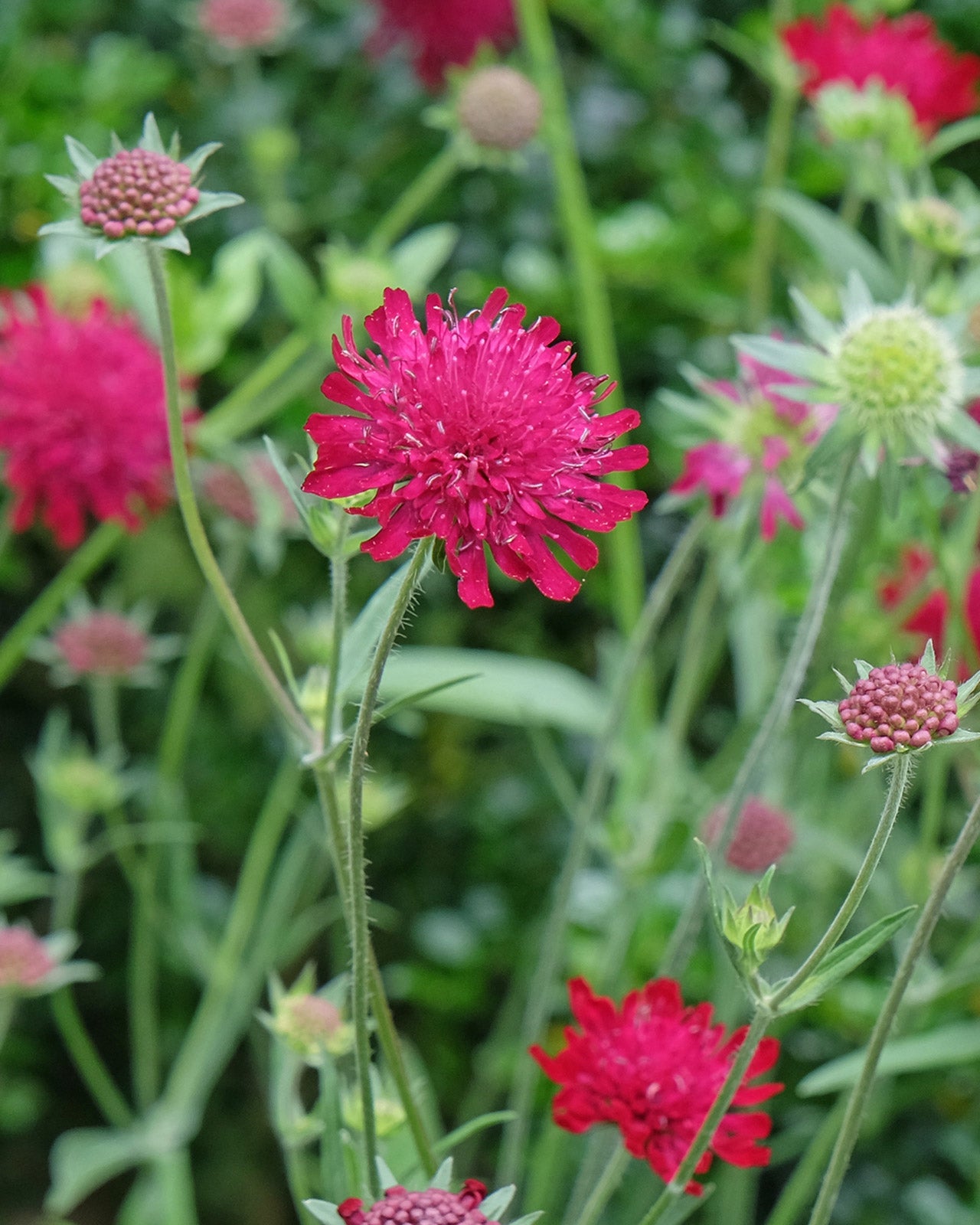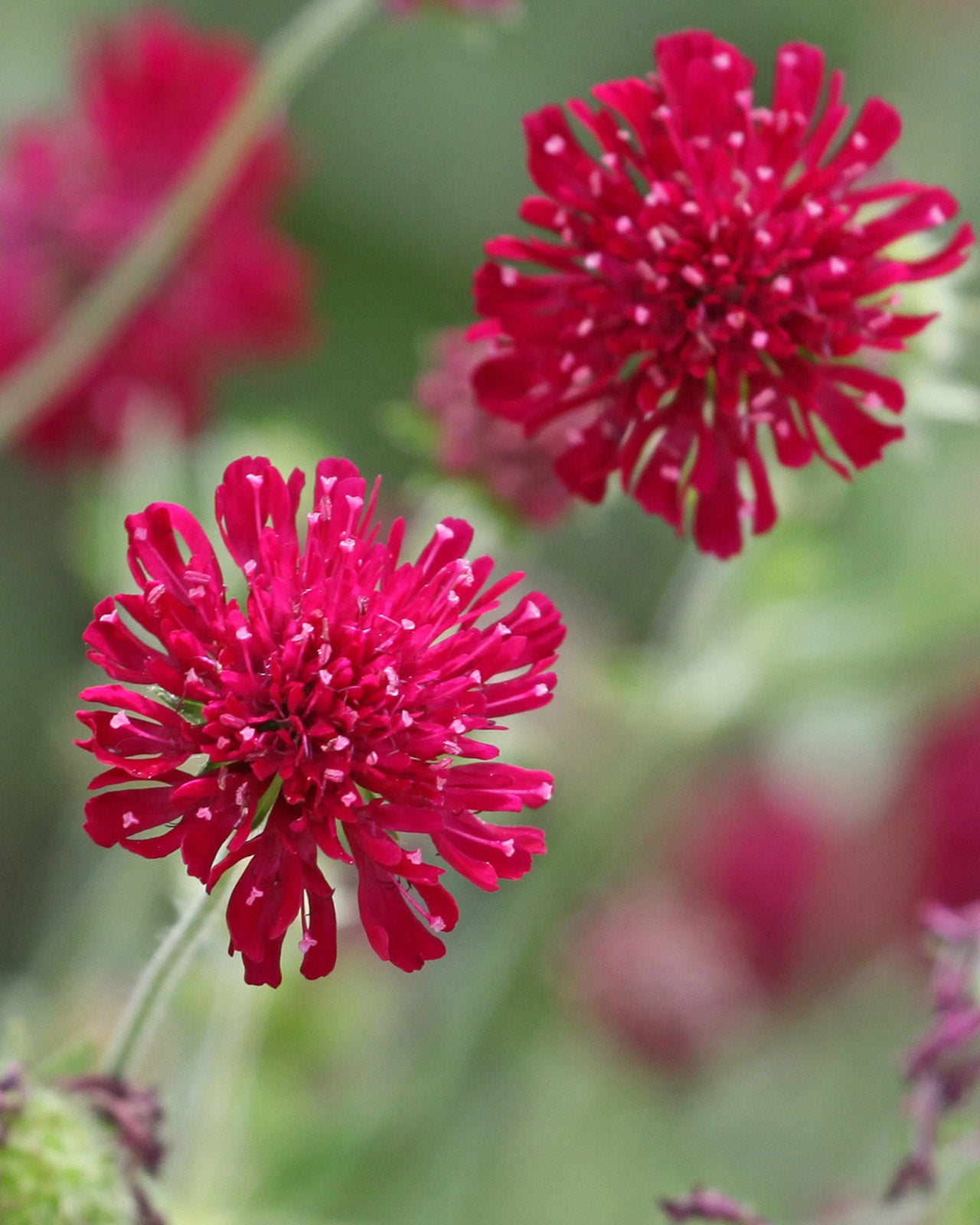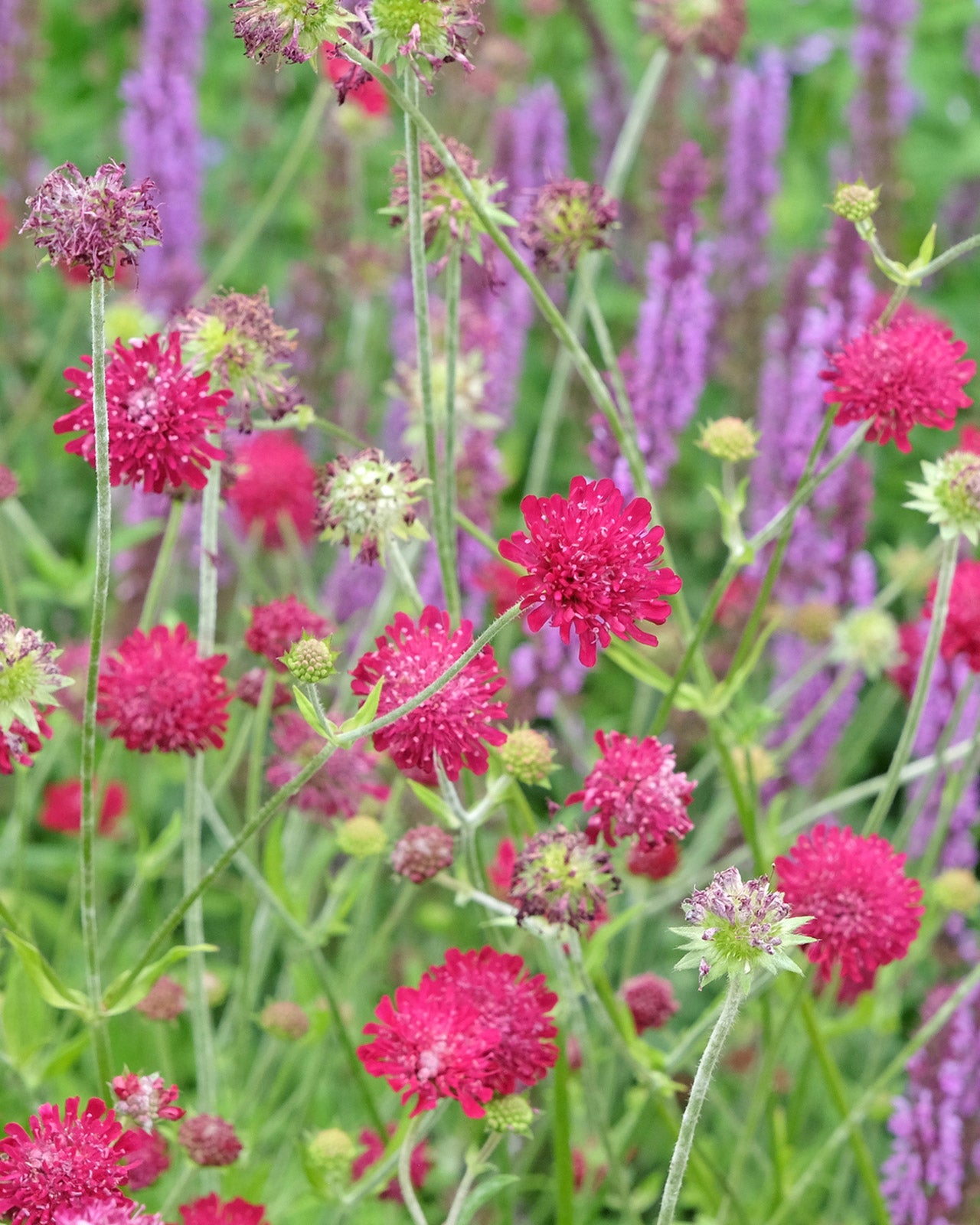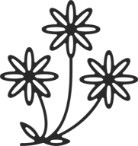


-
Why we like this plant
Knautia macedonica is a fantastic addition to borders, offering a long-lasting display of rich crimson flowers that add height and movement. Its ability to attract pollinators makes it an excellent choice for wildlife-friendly gardens, while its relaxed habit suits naturalistic and meadow-style plantings beautifully.
-
About this plant
Knautia macedonica is a highly decorative, free-flowering perennial that brings a light, natural feel to garden borders. Its small, deep crimson, pincushion-shaped flowers dance on tall, wiry stems above clumps of soft green foliage, adding movement and texture to planting schemes. Blooming from early summer well into autumn, it is a magnet for bees and butterflies, making it an excellent choice for pollinator-friendly gardens. This low-maintenance plant thrives in well-drained soils and is ideal for cottage gardens, prairie-style planting, and informal borders where its relaxed, natural habit can shine.
-
Key features
- Deep crimson, pincushion-like flowers
- Long flowering period from early summer to autumn
- Airy, wiry stems add movement to the garden
- Excellent for pollinators, attracting bees and butterflies
- Perfect for cottage gardens, meadow planting, and naturalistic borders
-

Height and
spread -

Growth
habitTall, airy, clump-forming
-

Moisture
Moderate; prefers well-drained soil and tolerates some drought
-

Position in
the GardenBorders, cottage gardens, prairie planting, wildlife-friendly gardens
Planting guide
- Plant in well-drained, fertile soil
- Position in full sun for best flowering
- Space plants around 40-50cm apart to allow for spreading
- Best planted in spring or autumn
Care tips
- Deadhead regularly to encourage continuous flowering
- Cut back after flowering to maintain a tidy appearance
- Prefers well-drained soil and dislikes waterlogging
- Divide clumps every few years to maintain vigour
- May self-seed in ideal conditions, adding natural charm
Winter care
- Fully hardy; requires minimal winter protection
- Leave seed heads for winter interest and wildlife
- Cut back old growth in early spring












